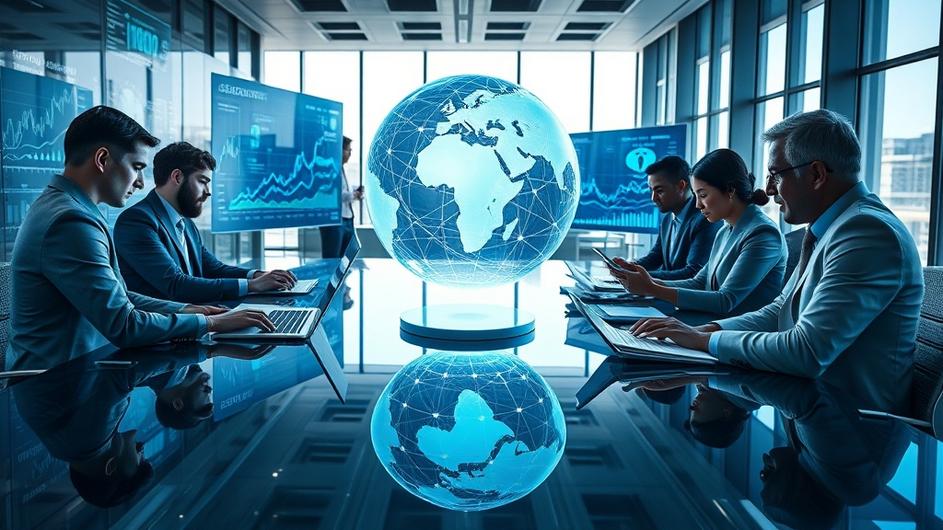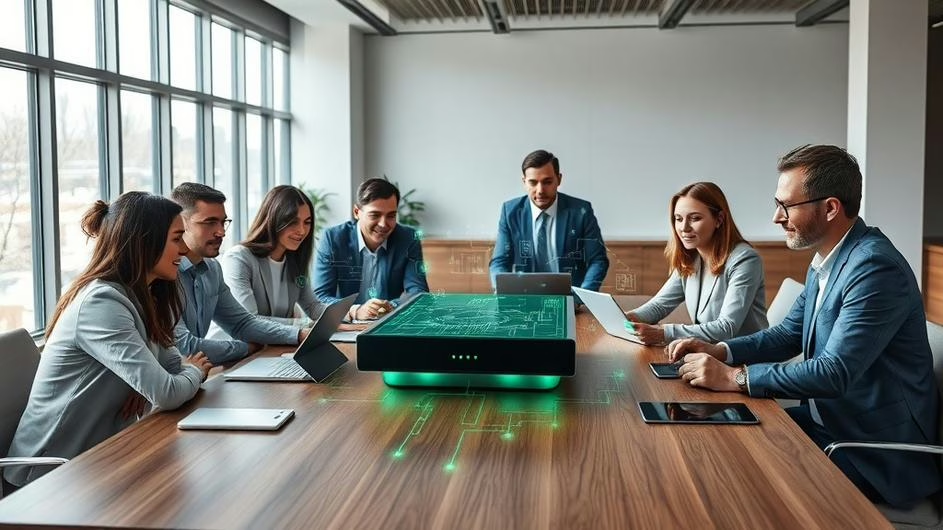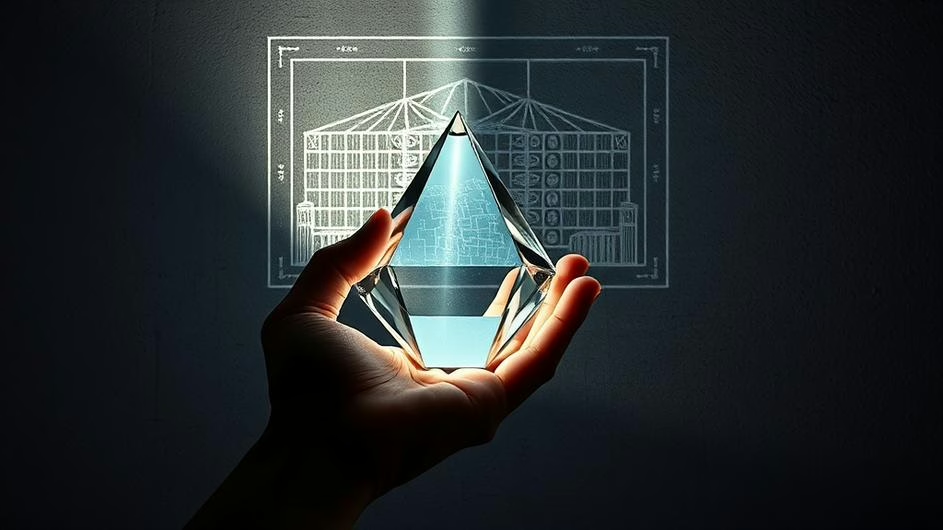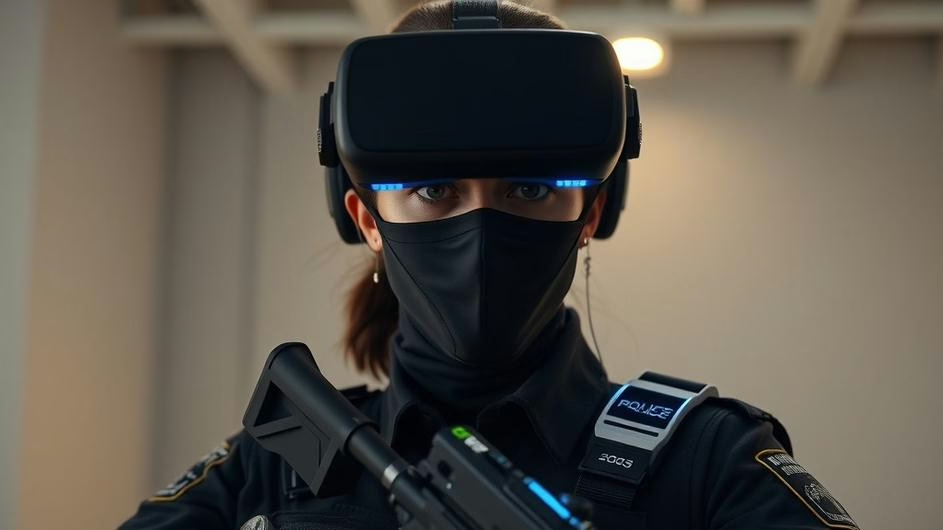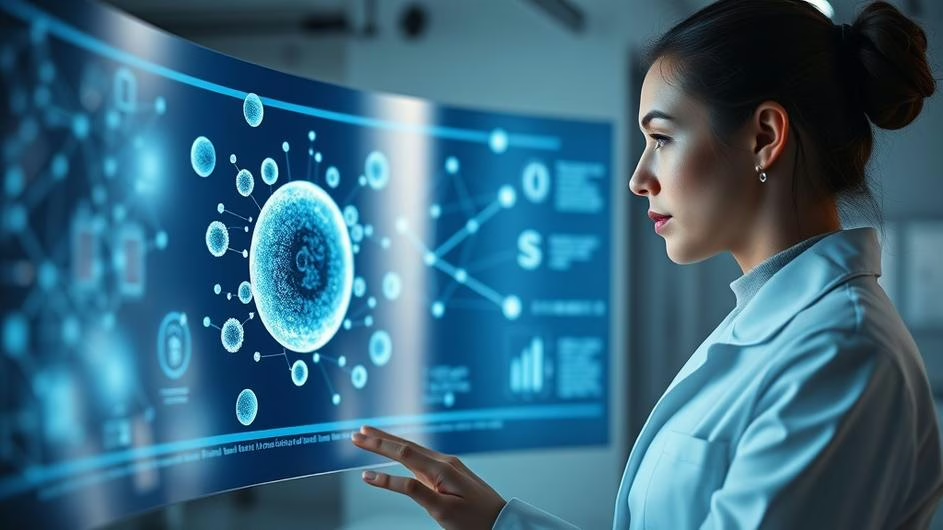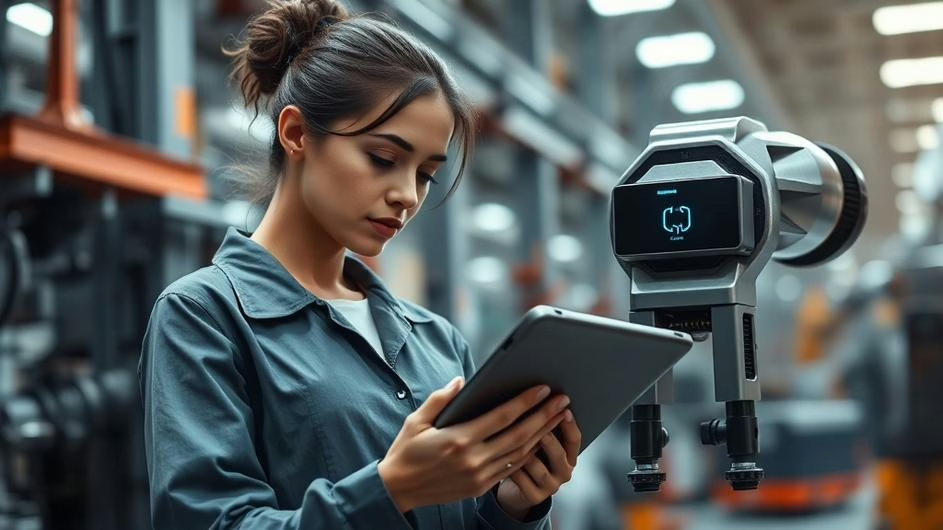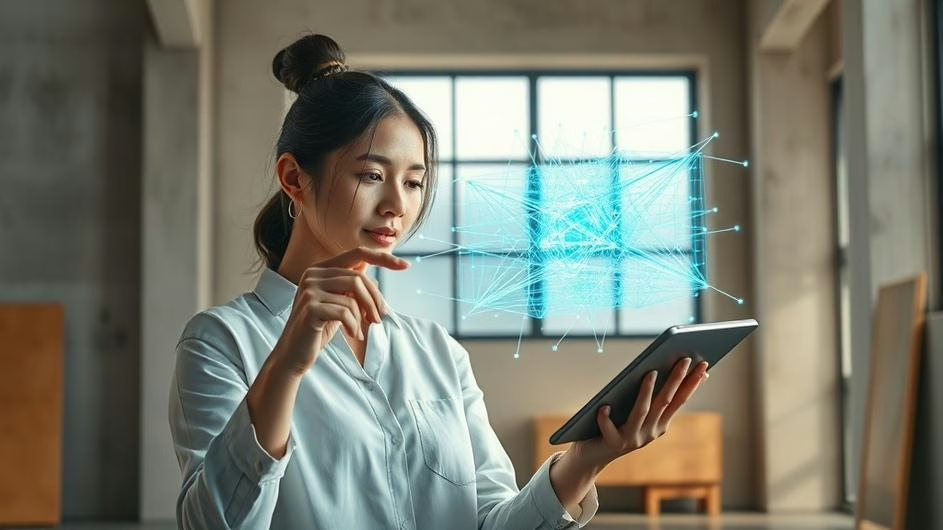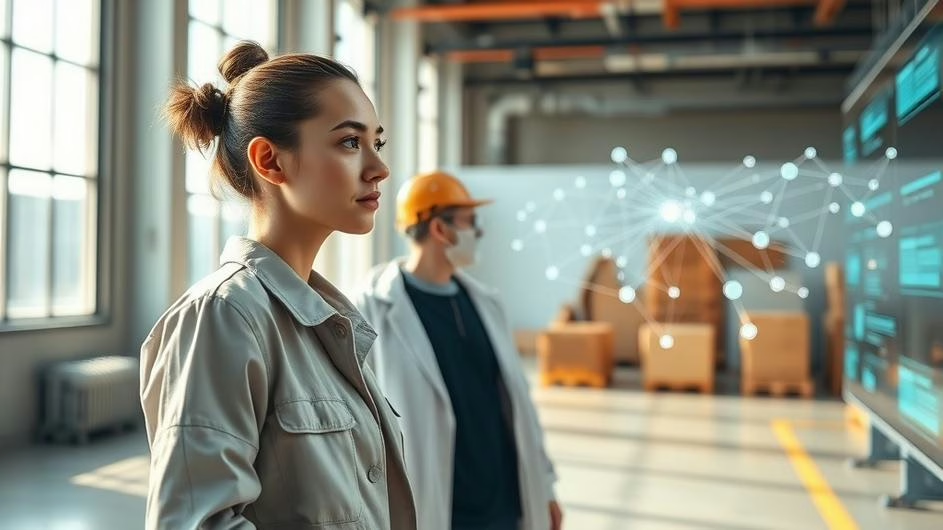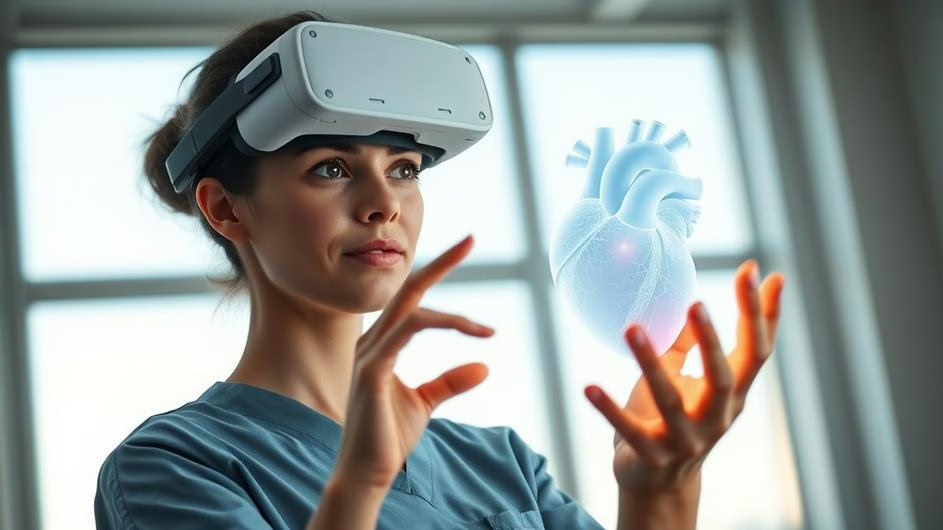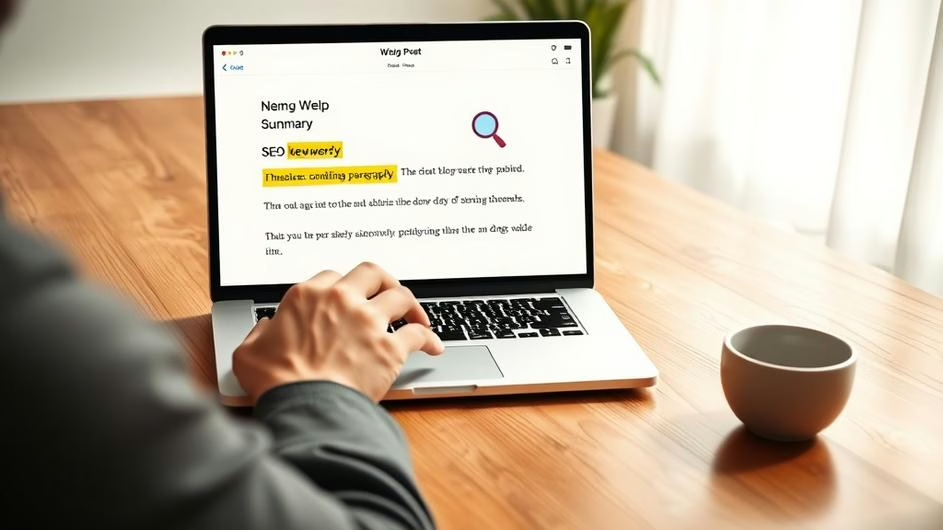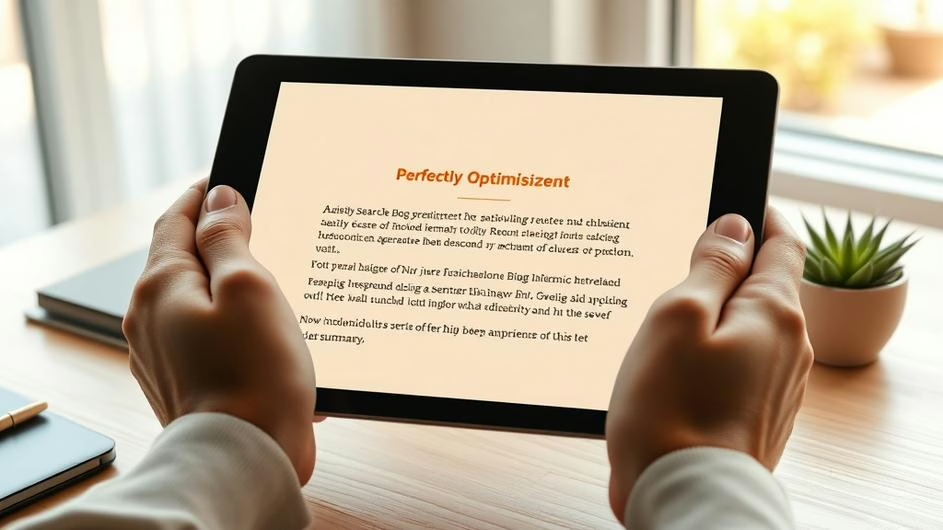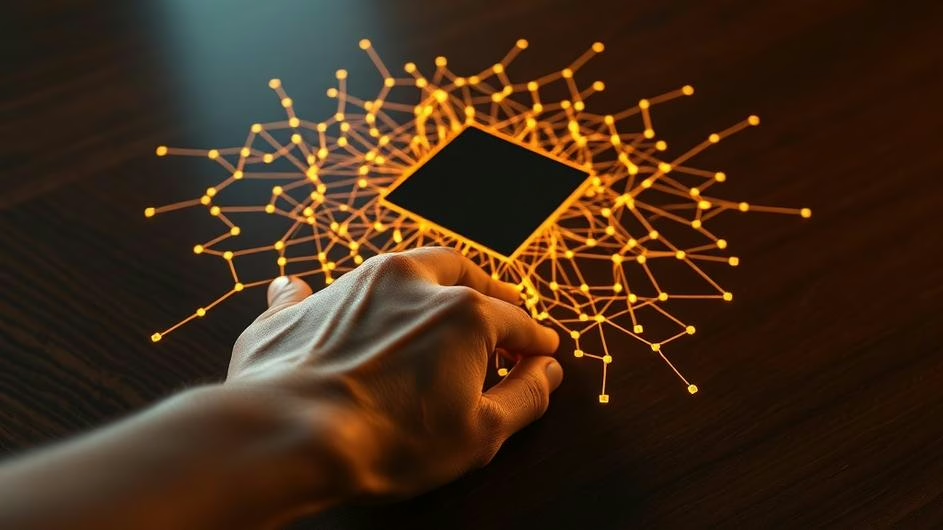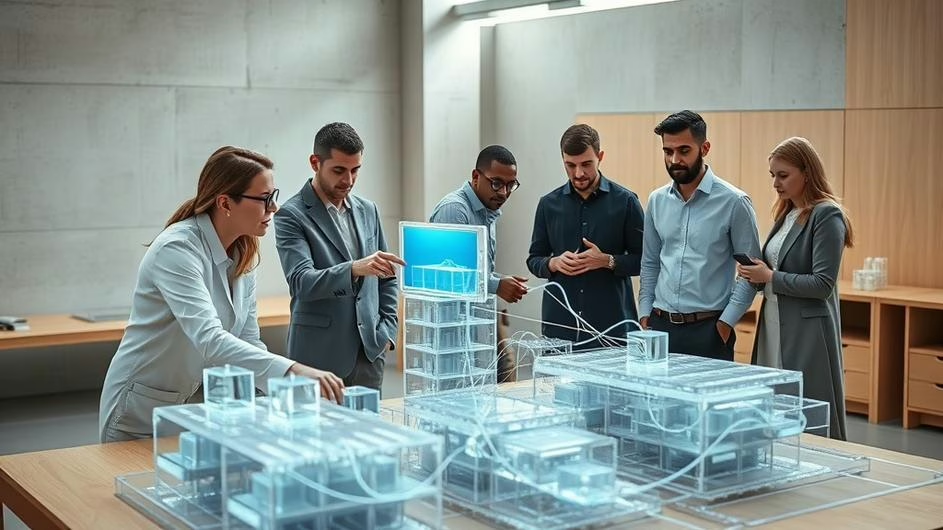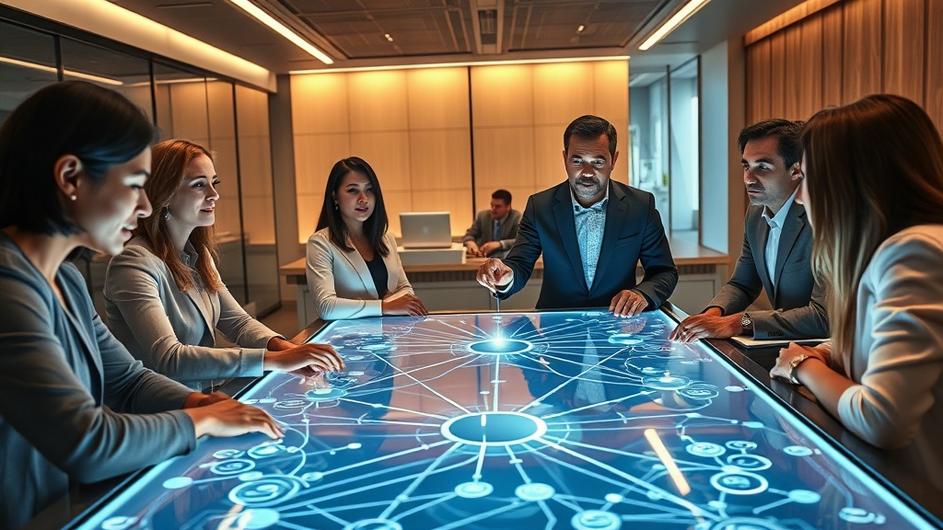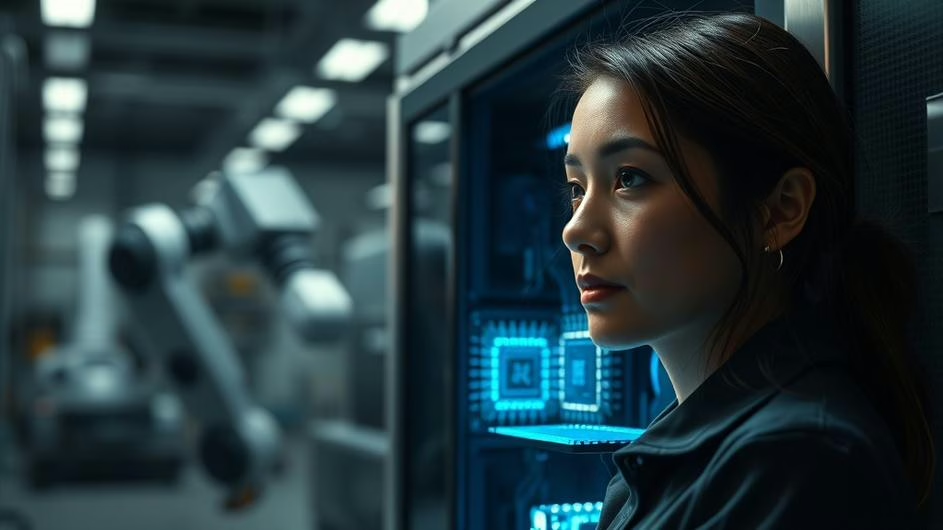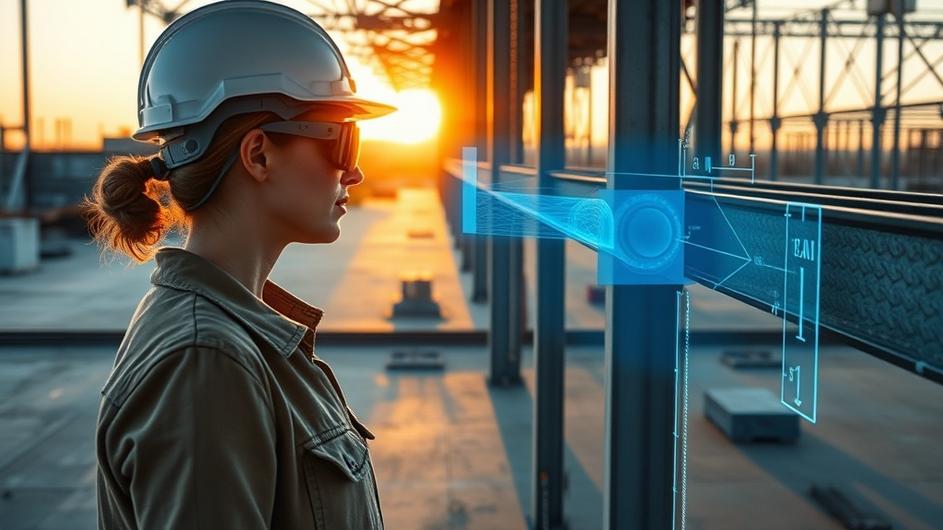
The Transformative Journey of Artificial Intelligence Across Industries: A Deep Dive into AI’s Expanding Horizons
Artificial intelligence isn’t just a buzzword from a sci-fi movie anymore. It’s here, and it’s already changing everything. AI has quietly woven itself into the fabric of major industries, completely overhauling how we do things in manufacturing, cybersecurity, and even how we search for information online. This shift gives us a clear look at today’s tech and a roadmap for where we’re heading. So, what does this AI-powered world actually look like for businesses and for us?
AI on the Factory Floor: A New Era of Manufacturing
Manufacturing is at the forefront of the AI revolution. Forget the clunky, repetitive robots of the past. Today’s factories are using intelligent systems to push productivity to new heights. For example, AI-powered machines on an assembly line can optimize their own movements with incredible precision. But it goes deeper than that. Machine learning algorithms can now predict when a piece of equipment might fail before it actually breaks down. This predictive maintenance minimizes costly downtime. These smart systems are constantly crunching huge amounts of data from sensors, creating a live feedback loop that fine-tunes the entire operation. It’s a fundamental shift from being reactive to proactive, leading to better products and more efficient production lines. This is a core part of the rise of AI-driven workflows that are reshaping modern business.
Cybersecurity’s AI Sentinel: Outsmarting Digital Threats
AI’s influence isn’t limited to physical production. In the digital world of cybersecurity, it’s become an essential defense. Think of AI as a super-smart security guard that never sleeps, capable of spotting and neutralizing threats faster than any human team. By using machine learning, modern security tools can analyze network traffic and flag strange behavior that might signal an attack. This is how they catch sophisticated threats like zero-day exploits or insider attacks that older systems would miss. As cybercriminals get smarter, this kind of dynamic defense is crucial. The beauty of AI is its ability to learn from new attack patterns, which means security systems can evolve to stay one step ahead. As the awareness of cybersecurity threats grows, AI has become a non-negotiable tool for protecting sensitive data and critical infrastructure.
How AI Is Making Search Smarter
Remember when you had to type the exact right keywords into a search bar to find what you needed? Those days are fading fast, thanks to AI. Search engines are moving beyond simple keyword matching to understanding what you really mean. Using natural language processing and semantic analysis, they can figure out the context of your search and your intent. This allows them to deliver more personalized and relevant results, making the whole experience feel more intuitive, almost like you’re talking to a person. It’s this ability to interpret language and uncover nuanced meanings that is unlocking the next AI revolution in how we access information. For businesses, this means better ways to connect with customers by tailoring content that truly answers their questions.

On the Road with AI: Transportation and Smart Cities
Transportation is another area where AI is making huge strides, especially with autonomous vehicles and smart city infrastructure. Self-driving cars use a powerful mix of computer vision, data from multiple sensors, and machine learning to navigate our chaotic roads safely. These aren’t just concepts anymore; they are becoming a reality on our streets. These autonomous vehicles promise to dramatically reduce accidents caused by human error. But the vision is even bigger. AI-powered smart transportation systems can optimize traffic flow in real-time, cutting down on congestion and vehicle emissions. Imagine cities that are cleaner and easier to get around in. Of course, this progress forces us to have serious conversations about safety, privacy, and ethics, proving that technological development has to go hand-in-hand with smart governance. Indeed, as AI, 5G, and edge computing converge, our infrastructure will need to become more resilient to handle these new demands.
The Policy Challenge: Steering AI Toward a Better Future
All this amazing technology brings up some tough questions. The policy side of AI is just as important as the tech itself. Governments and regulators around the world are trying to figure out how to encourage innovation while protecting people from risks like algorithmic bias, job losses, and privacy violations. How do we build AI that is fair and equitable? Crafting good policies requires a deep understanding of what AI can and can’t do, as well as its social impact. Things like transparent algorithms, ethical AI frameworks, and strong data protection laws are becoming essential. This ongoing dialogue on the societal impact of AI will determine whether it becomes a tool for positive change or one that deepens existing divides.
A Connected Ecosystem of Intelligence
Looking at these different sectors, a clear theme pops up. AI is creating a new paradigm where automation is blended with smart decision-making. These new ecosystems are more adaptive, secure, and centered around the user. And it’s not happening in a vacuum. An advance in one area, like a new machine learning model for cybersecurity, can often be adapted to improve something else, like the navigation system in a self-driving car or the recommendation engine in an AI smartphone. This synergy is powerful. It points to a future where AI is seamlessly integrated into our daily lives, often working quietly in the background to make things better. The development of new hardware, like the Arm Lumex CSS Platform, is designed to deliver this smarter, faster AI directly on our consumer devices.
What’s Next on the AI Horizon?
This journey is just getting started, and it presents both incredible opportunities and real challenges. AI learns and adapts so quickly that businesses have to stay on their toes to keep up. This also means our jobs will change. The need for upskilling and education has never been greater, as people learn to work alongside intelligent systems. Some see this leading to concepts like the Neighborhood AI Factory, where local compute hubs deliver AI services directly to communities. Furthermore, ethics and transparency can’t be an afterthought. They must be baked into the design and deployment of any AI system from day one. Companies specializing in ultra-low-power AI solutions for edge computing are already building this efficiency and intelligence directly into devices.
As we look to the future, AI stands out as a force that will continue to reshape our world. We’re moving toward a future where human ingenuity and machine intelligence work together, driving innovation that is not just powerful, but also aligned with our values. For anyone in tech or business, paying close attention to these trends isn’t just smart, it’s essential for shaping the world of tomorrow.
Sources:
- “How AI is Transforming Manufacturing,” Tech Industry Today
- “AI and Cybersecurity: The New Frontier,” Cybersecurity Weekly
- “The Future of Search: AI’s Role in Revolutionizing User Experience,” Search Engine Innovations
- “Autonomous Vehicles and Smart Cities: AI in Transportation,” UrbanTech Journal
- “Policy and Ethics in Artificial Intelligence,” Governance and Technology Review











































